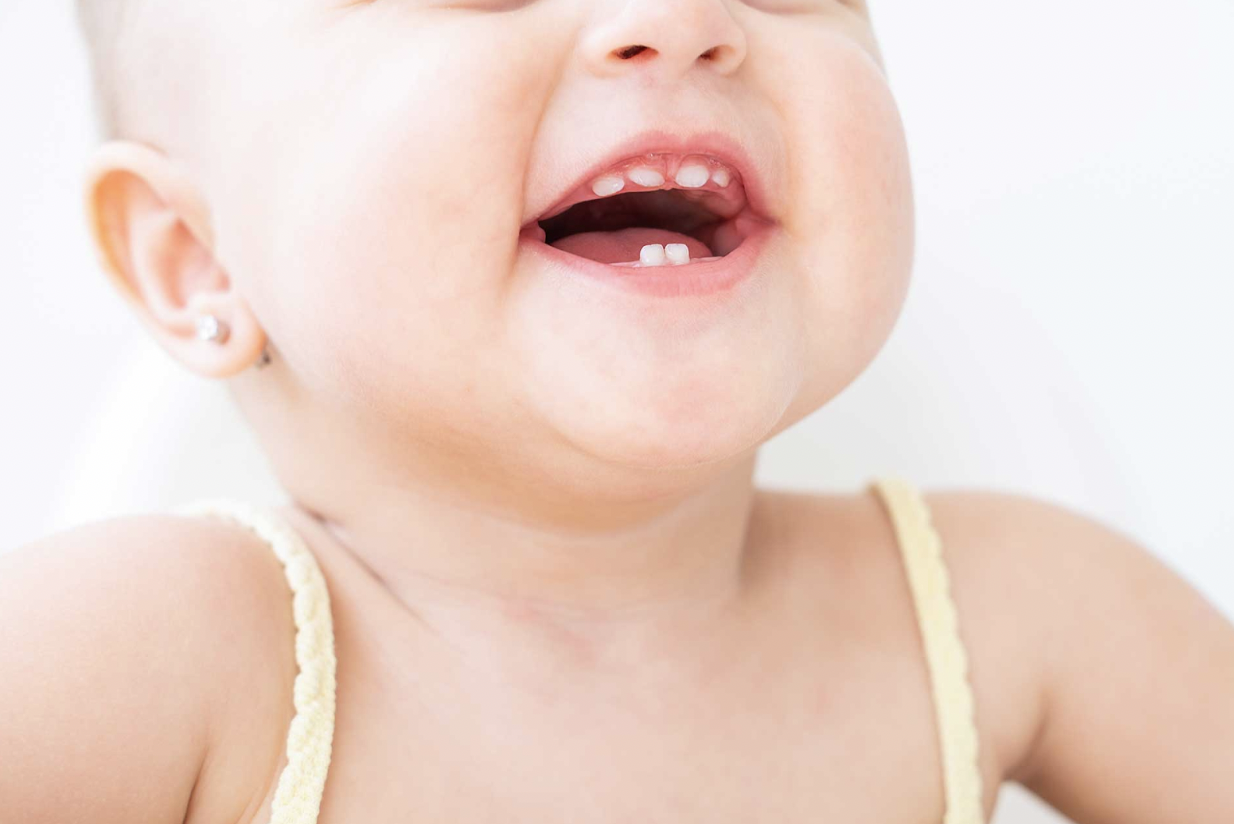Laying the Foundation: How Baby Teeth Shape Your Child’s Orthodontic Journey

Baby teeth, while temporary, play a crucial role in shaping your child’s long-term dental health. These small teeth act as the foundation for proper alignment, jaw development, and the healthy eruption of permanent teeth. Understanding their significance helps parents take proactive steps early — including consulting with a kids' orthodontist for proper guidance. Learn more about kids' orthodontic care at Smile Team and how early assessment can support your child’s best dental future.
The Role of Baby Teeth
The importance of baby teeth begins early in life, as dental development starts before birth.
Baby teeth, or primary teeth, begin forming in the fetus at around six weeks of gestation, with hard tissues developing by three to four months. After birth, these teeth start to erupt through the gums, typically beginning around six months of age, with most children having a complete set of 20 primary teeth by age three.
Are baby teeth important? Absolutely. Baby teeth are more than placeholders for permanent teeth—they are critical for chewing, speaking, and maintaining proper spacing in the jaw. Here's why they matter:
- Guiding Permanent Teeth: Baby teeth act as natural guides for permanent teeth to erupt in the correct positions. Losing them prematurely can lead to misalignment or crowding issues.
- Jaw and Facial Development: These teeth support proper jaw growth and influence the overall facial structure. Misaligned or missing baby teeth can disrupt this process.
- Speech Development: Properly aligned baby teeth contribute to clear speech patterns in early childhood.
- Self-Esteem: Healthy baby teeth boost a child’s confidence, especially during social interactions.
Baby Teeth and Orthodontics
The connection between baby teeth and orthodontics is deeply intertwined. Orthodontic treatments often focus on aligning teeth and improving bite relationships, which are influenced by the health and alignment of baby teeth.
Early orthodontic evaluations can assess how baby teeth affect the development of permanent teeth and jaw alignment. This approach helps identify issues requiring orthodontic intervention, such as crowding or bite problems, allowing for timely and effective treatment plans.
Common Issues with Baby Teeth That Affect Orthodontic Health
Baby teeth are susceptible to various issues impacting your child’s orthodontic future. Here are some common problems:
- Premature Loss: Early loss of baby teeth due to decay or injury can cause adjacent teeth to shift into the empty space. This misalignment may block permanent teeth from erupting properly.
- Prolonged Retention: When baby teeth don’t fall out on time, they can force permanent teeth to erupt in incorrect positions, leading to crowding or malocclusion (misaligned bite).
- Thumb-Sucking and Tongue-Thrusting Habits: Prolonged habits like thumb-sucking or tongue-thrusting can alter bite alignment by pushing upper front teeth outward or creating an open bite.
How Baby Teeth Impact Jaw Development and Bite Alignment
During early childhood, the jawbone grows and lengthens to accommodate the transition from 20 baby teeth to 32 permanent teeth. Baby teeth act as placeholders, maintaining space and alignment for permanent teeth to erupt correctly. If baby teeth are lost prematurely or retained for too long, this natural progression can be disrupted, potentially leading to malocclusion (misaligned bite) or other orthodontic concerns.
Moreover, the alignment of baby teeth impacts the development of jaw muscles and bones. Irregularities in spacing or positioning can strain the temporomandibular joint (TMJ), which may result in difficulties with chewing, speaking, or even breathing. Properly aligned baby teeth help distribute pressure evenly across the jaw, reducing stress on specific areas and promoting healthy growth.
Early Evaluation: Partnering with a Kids Orthodontist
An early evaluation with a kids' orthodontist is one of the most effective ways to safeguard your child’s orthodontic future. The Australian Society of Orthodontists recommends an initial check-up around age seven or eight. Here’s why:
Early Detection of Orthodontic Issues
Spotting problems such as crowding, overbites, or underbites early allows timely intervention. This often prevents minor issues from escalating into major concerns.
Reducing the Need for Complex Treatments
Early intervention minimises the need for more invasive procedures like extractions or surgery later in life. For instance, using space maintainers after premature tooth loss can prevent crowding.
Supporting Proper Facial Growth
Guiding jaw development during childhood ensures balanced facial symmetry and reduces risks associated with TMJ disorders.
Potential Cost and Time Savings
Treating issues early often results in shorter treatment durations and lower costs than addressing severe problems during adolescence.
Conclusion
Baby teeth are more than just temporary placeholders—they shape your child’s orthodontic future by guiding permanent tooth eruption, supporting jaw development, and influencing overall facial structure. You can ensure your child enjoys a healthy smile by addressing potential issues early through regular dental check-ups and consultations with a kids' orthodontist.
Investing in early dental care is not just about aesthetics; it’s about fostering confidence, comfort, and long-term oral health. Take the first step today by scheduling an evaluation with a trusted kids orthodontist to set your child on optimal dental well-being!






